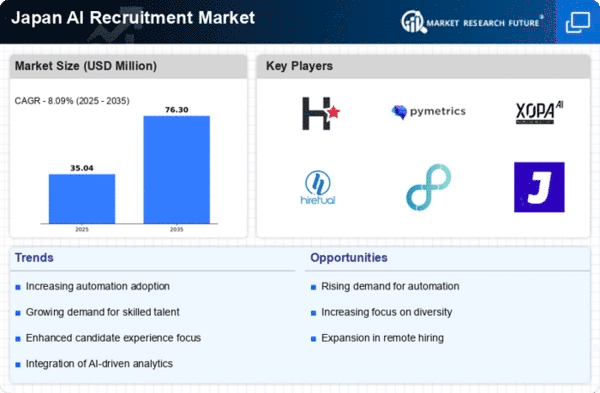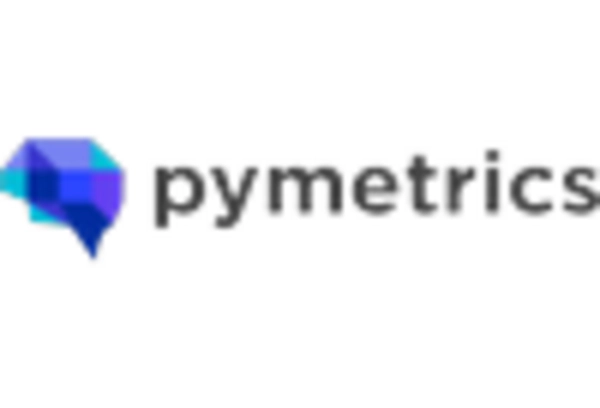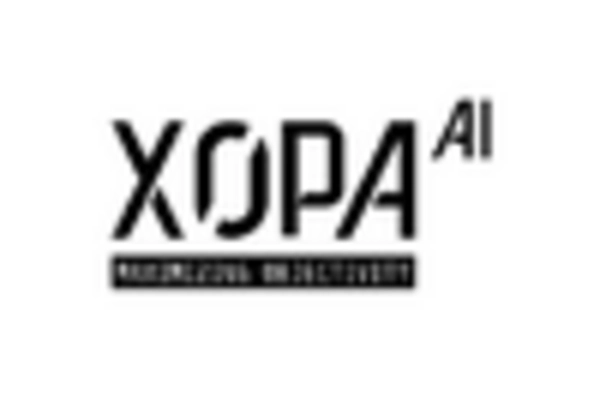Labor Market Dynamics
Japan's labor market is undergoing significant changes, which is influencing the ai recruitment market. With an aging population and declining birth rates, the workforce is shrinking, leading to a talent shortage in various industries. This situation compels companies to adopt AI recruitment solutions to identify and attract candidates more effectively. According to recent data, the unemployment rate in Japan stands at approximately 2.8%, indicating a tight labor market. As businesses strive to fill critical roles, The AI recruitment market is expected to experience growth as organizations seek innovative ways to engage potential employees. and enhance their recruitment strategies.
Shift Towards Remote Work
The shift towards remote work is reshaping the ai recruitment market in Japan. As organizations embrace flexible work arrangements, the geographical limitations in hiring are diminishing. This trend allows companies to tap into a broader talent pool, which can be effectively managed through AI recruitment tools. The ability to analyze candidate data from diverse locations enhances the recruitment process, making it more efficient. Furthermore, the demand for remote work capabilities is likely to drive innovation in AI recruitment technologies, as firms seek to optimize their hiring strategies for a distributed workforce. This shift presents both challenges and opportunities for the ai recruitment market.
Technological Advancements in AI
The rapid evolution of AI technologies is a primary driver in the ai recruitment market. In Japan, advancements in machine learning and natural language processing are enhancing the capabilities of recruitment tools. These technologies enable more efficient candidate screening and matching processes, which can lead to a reduction in hiring time by up to 30%. As companies increasingly adopt AI-driven solutions, the demand for sophisticated recruitment platforms is likely to grow. This trend is particularly evident in sectors such as technology and finance, where the competition for skilled talent is fierce. The ai recruitment market in Japan is projected to expand as organizations seek to leverage these technological advancements to streamline their hiring processes.
Regulatory Changes and Compliance
The regulatory landscape in Japan is evolving, impacting the ai recruitment market. New laws and guidelines regarding data privacy and employment practices are emerging, necessitating that recruitment firms adapt their AI systems accordingly. Compliance with these regulations is crucial for maintaining trust and credibility in the hiring process. Companies that leverage AI recruitment tools must ensure that their algorithms are transparent and fair, which may require additional investments in technology and training. As organizations navigate these regulatory changes, the ai recruitment market is likely to see an increase in demand for compliant AI solutions that align with legal requirements.
Increased Investment in HR Technology
Investment in HR technology is a significant driver of the ai recruitment market in Japan. Companies are increasingly allocating budgets towards AI-driven recruitment solutions to enhance their hiring processes. Recent statistics indicate that the HR technology market in Japan is expected to grow by approximately 15% annually, reflecting a strong interest in innovative recruitment methods. This influx of capital is likely to spur the development of new AI tools that improve candidate sourcing, screening, and engagement. As organizations recognize the value of investing in advanced recruitment technologies, the ai recruitment market is poised for substantial growth in the coming years.

















Leave a Comment